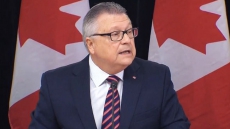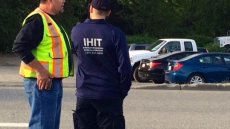TORONTO — Canadian provinces have confiscated tens of millions of dollars in assets as proceeds of crime, but a new report indicates the seizures are often a simple cash grab from innocent parties.
The analysis concludes the rationale for the laws — to confiscate property from criminals and organized crime and compensate victims — has been lost in their application.
"These laws are not fair," states the report by the Canadian Constitution Foundation and Institute for Liberal Studies.
"Civil forfeiture laws allow provincial governments to seize property not only from criminals, but also from people who have never been charged with, or even suspected of, a crime."
In criminal proceedings, the standard for guilt is proof "beyond a reasonable doubt." Civil cases work on lower "balance of probabilities." This makes it easier to go after cash and other assets, especially where evidence for criminal charges, let alone a conviction, is lacking, the report states.
In one case, a man in Saskatchewan sold $60 worth of Oxycontin he legally owned to buy gas so he could drive to work. The government took away his $7,500 truck.
One Ontario couple saw their $400,000 12-unit apartment building seized because some renters were involved in illegal activities. The province argued they should have evicted the tenants. In another Ontario case, the province sought to confiscate a couple's two rooming houses because some tenants allegedly sold drugs.
Alberta assumes that if police find $10,000 or more in cash during an investigation, the money was illegally acquired. British Columbia confiscates expensive cars — in one case a $235,000 Ferrari — used in traffic offences.
No province requires criminal charges or convictions to initiate civil-forfeiture proceedings. In fact, New Brunswick makes it explicit you can still lose your property even if you're acquitted criminally.
Another issue, according to the report, is that money from such proceedings goes to provincial governments and police services with little accountability or transparency.
B.C., for example, has seized $41 million in recent years, but paid out just $1.5 million to victims. Ontario reports distributing $21.2 million to victims to since 2003. Yet in 2013-14 alone, the province seized $22.9 million. One police board in Ontario, Peel region, used seized money to buy tens of thousands of dollars in tickets to mayoral galas. B.C. used none of the money it seized between 2006 and 2012 to compensate victims. Instead, all went into the civil forfeiture regime itself.

In addition, some provinces appear to make no effort to track the money. The report states that none of the provincial forfeiture regimes has been subject to an auditor general's review.
"It is difficult to know how much money collected by successful civil forfeiture applications goes towards compensating victims," the report states. "Instead, it seems that much is used to purchase equipment for the police or is spent on trivial and improper expenses."
There was no immediate comment from the provinces to the report.
The Calgary-based foundation, which bills itself as protecting the constitutional freedoms of Canadians, and the Ottawa-based liberal studies institute make several recommendations:
— Forfeiture should only be available when a property owner has been convicted of a provincial offence.
— Judges should have discretion to craft proportionate forfeiture orders.
— Civil forfeiture should only be available for property used or acquired by an owner convicted of a corresponding provincial offence where an identifiable victim was harmed.
— Revenue collected by successful civil forfeitures should compensate victims that suffered harm as a result of a convicted property owner's acts.
— Each provincial civil forfeiture office should provide a full and accurate annual report on revenues raised and compensation disbursed.
Only Prince Edward Island and Newfoundland and Labrador have no such laws among provinces. Neither do the territories.
.jpg)




